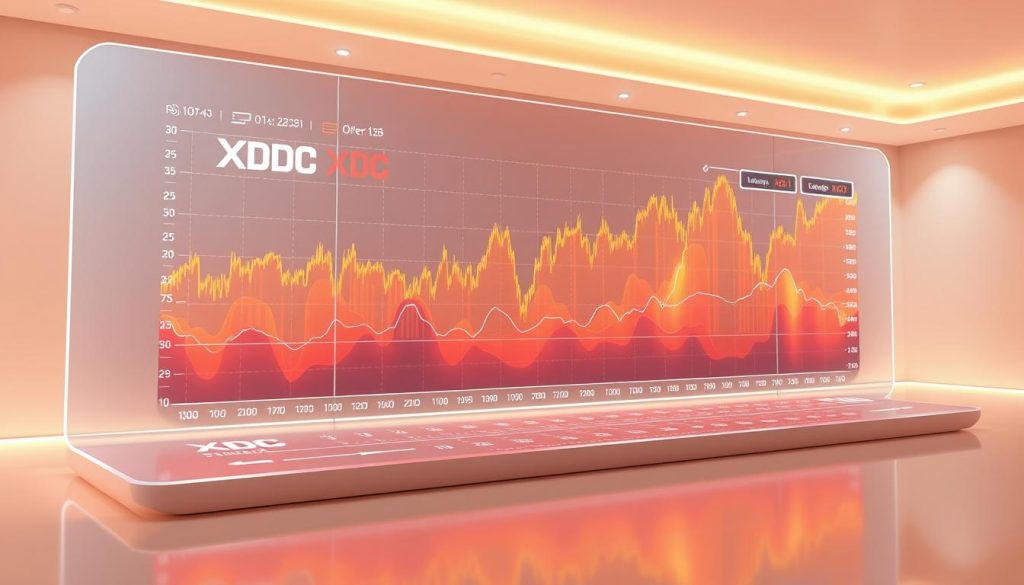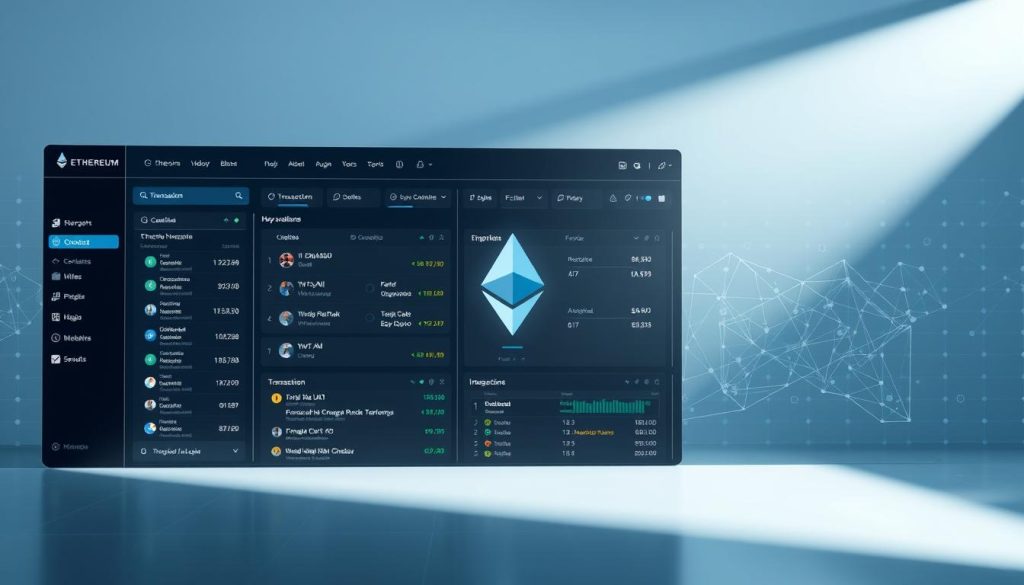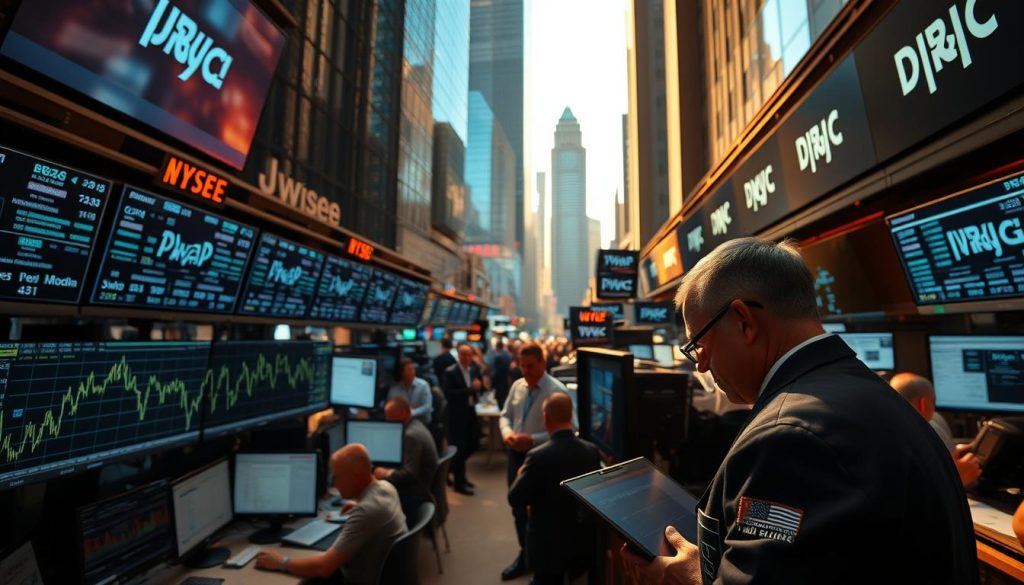In August 2024, over 12 million people turned to Uniswap. This shows non-custodial platforms can manage large volumes. And they do it without making users go through long identity checks. This is key for those looking to buy crypto without KYC, as it shows there are speedy, viable options beyond traditional exchanges that ask for selfies and government IDs.
Many new users quit Coinbase and Binance when faced with ID and address proof requests. Platforms like StealthEX, Uniswap, and PancakeSwap offer easier ways to buy crypto without KYC. For example, StealthEX lets users buy up to about $700 without needing to verify their identity. What’s more, many DEXs don’t ask for any identity proof at all.
This guide will give you the inside scoop on buying crypto without ID. I’ll cover what’s legal in the U.S. and the steps I follow myself. You’ll get a balanced perspective. I’ll talk about the trade-offs between privacy and speed. Plus, I’ll explain the convenience and the risks to help you decide wisely.
Key Takeaways
- Non-custodial platforms and DEXs power most crypto buying without personal information today.
- Small no-KYC purchases (examples: up to ~$700) are commonly supported by services like StealthEX.
- Major centralized exchanges enforce strict KYC; non-KYC paths trade convenience for different risks.
- I’ll cover legal risks in the U.S., plus practical steps to complete a no KYC crypto purchase safely.
- Understand wallet choices and basic safeguards before making a purchase without ID.
Understanding KYC (Know Your Customer) Regulations
I have seen the impact of KYC on users. At first, it seems like just forms and uploads. But it’s much more. You find technologies like ID scanning, selfies, and utility bills. There’s also biometrics and blockchain analysis.
What is KYC?
KYC means Know Your Customer. It’s a way for platforms to check your identity. This includes verifying your ID and face, and sometimes your documents. For larger transactions, they may even use biometrics. This is standard for banks and big exchanges like Coinbase and Kraken.
Purpose of KYC in Cryptocurrency
The main goal is to fight fraud, money laundering, and illegal financing. Regulators aim for traceability. Companies follow rules like AMLD5 and MiCA. They collect identity info to meet these regulations. For using cards or bank accounts, identity checks are usual.
Impact of KYC on User Privacy
Some users want to buy crypto without KYC because they worry about their data. Collecting personal info can lead to concerns about leaks or misuse. This prompts some to seek ways to buy crypto anonymously.
Decentralized platforms offer less oversight. They use smart contracts to move funds without central control. This means there’s no easy way to fix mistakes. KYC in crypto is necessary but different from how banks do it.
Why People Seek to Buy Crypto Without KYC
I’ve seen how chat in forums and Telegram groups has changed. Now, people want easier and quicker ways to invest. They aim to skip the wait and protect their privacy. This drives the interest in buying crypto without sharing personal info.
Why do they care about privacy so much? They fear losing data on big exchanges and don’t like being tracked all the time. Whether for job reasons or distrust in big platforms, buying crypto anonymously seems the safer choice.
Then, there’s the issue of getting to use the services. In places without proper banks, some can’t use traditional banking services. They turn to peer-to-peer networks and some decentralized options that don’t ask for lots of documents.
Need for speed is another big reason. When the market moves, being slow can mean losing money. People want to buy crypto fast and without delays from identity verification.
Yes, there are some shady reasons too. A few try to dodge rules or taxes. But there are also good reasons, like staying off the radar of ads, avoiding identity theft, and making trading easier.
In the end, it’s about balancing desires and risks. People long for fast access and privacy but must take care of their safety. The allure of no-info crypto buying is strong, yet aware users weigh it against possible scams and losses.
Legal Aspects of Buying Crypto Without KYC
I’ve seen rules and practices collide in private crypto deals. The difference between platform promises and what regulators do is huge. This affects how people legally buy crypto without KYC in the US.
Current Laws in the United States
U.S. agencies fight money laundering and enforce sanctions. They make financial bodies and exchanges follow the Bank Secrecy Act and FinCEN’s advice. Thus, many platforms must obey US crypto KYC rules, despite some claiming exemptions for small transfers.
Some services say small transactions don’t need ID. But this is about practice, not legal avoidance. Banks watch these transactions and report anything odd.
Potential Risks and Consequences
Using non-KYC services is risky. If a wallet gets linked to bad funds, users can lose assets or face legal issues. Exchanges have been fined for not following sanctions, showing regulators are watching.
There’s risk for users too. Decentralized and unverified services don’t offer deposit insurance or ways to solve disputes. I know from experience, losses or scams leave you with no help.
Regulatory Evolution
Rules are getting stricter worldwide. The EU’s AMLD5 and MiCA suggest more control is coming. The US is also paying closer attention. This means more checks for customers and tougher buying rules over time.
The rise in black-market account trading and fake IDs is drawing regulator eyes. This leads to harder rules for services. For those considering legal crypto buys without KYC, keeping up with rules and obligations is key.
Top Platforms for Buying Crypto Without KYC
I talk about what I use and test for quick crypto access without full ID checks. We can look at three main ways: peer marketplaces, on-chain swaps, and cash machines. Each option has its own balance between privacy, fees, and ease.
Peer-to-Peer Marketplaces
Peer-to-peer crypto trading connects buyers with sellers directly. Markets like LocalCryptos and Bisq offer trades through bank transfers, cash, or payment apps, depending on local rules.
P2P is great for people without banks and those skipping centralized KYC checks. I’ve turned to P2P for quick small buys. The risks include possible fraud. Always check reputations and use trades with escrow.
Decentralized Exchanges
Decentralized exchanges operate with no KYC using smart contracts. Big names include Uniswap and PancakeSwap. These don’t accept direct fiat and need a wallet like MetaMask or Trust Wallet.
Uniswap is popular, with millions of users monthly and a big share in DEXs. PancakeSwap also attracts many on the BNB Smart Chain. They allow token swaps without ID checks. Yet, on-chain fees and slippage are important to consider.
Crypto ATMs
Crypto ATMs let you buy Bitcoin and other coins with cash. Each operator has their own limits and rules. For small transactions, ID checks are often skipped, making ATMs easy for minor buys.
However, ATMs generally charge higher fees than online options. I use them when I value privacy and speed over cost. Always check their limits. Regulations can also change how operators act very quickly.
I try services like StealthEX for quick fiat-to-crypto exchanges without KYC for small amounts. Big central platforms like Binance and Coinbase ask for ID for most fiat services. So, for no KYC, people often go for peer-to-peer buying, no KYC decentralized exchanges, local ATMs, or specific swap services.
Statistics on Non-KYC Crypto Transactions
I keep a close eye on market signals because numbers often tell us more than stories do. Here, I’ve detailed trends in adoption, peer activity, and how different platforms influence non-KYC behavior.
Overall Usage Trends
DeFi has shown it can scale up big. By November 2023, it had a total value locked of about $50 billion. This indicates a growing interest in avoiding KYC-heavy options, showing a clear path for those preferring crypto without KYC verification.
Growth of Peer-to-Peer Trading
P2P and DEX usage have jumped as users grow more comfortable with these platforms. For example, Uniswap saw about 12 million active users in August 2024. This points to a strong desire for non-custodial trading options.
In the same period, PancakeSwap had around 1.9 million unique visitors, highlighting the worldwide appeal of non-KYC trading paths.
Market Share of Non-KYC Platforms
In August 2024, Uniswap held nearly 60% of DEX market activity. This underscores how non-KYC platforms are drawing mainstream crypto interest. However, most of the market is still with centralized exchanges. For instance, Binance’s customer base barely changed after it introduced stricter KYC policies, suggesting that most money moves through KYC-compliant channels.
Rules in place affect how services are used. Some platforms set a no-KYC limit, like a $700 max for swaps. This encourages people to make smaller transactions, which then impacts the growth dynamics of non-KYC transactions.
Here’s a brief overview to compare decentralized actions against centralized ones.
| Metric | Decentralized (Examples) | Centralized (Examples) |
|---|---|---|
| Monthly active users (Aug 2024) | Uniswap ~12,000,000; PancakeSwap ~1,900,000 | Top exchanges combined: larger registered bases, slower MAU growth |
| TVL / Liquidity (Nov 2023) | DeFi TVL ~ $50 billion | Centralized custody holds far higher nominal assets, but KYC required |
| Typical transaction size | Skewed toward smaller tickets due to no-KYC caps | Wider range; institutional flows increase average size |
| Platform share indicator | Uniswap ~60% of DEX activity | Major CEXes dominate total market volume despite KYC |
Tracing these figures over time showcases a constant rise in non-KYC transactions in certain areas, even as the broader market sticks with KYC-compliant platforms. Understanding this divide is crucial for those looking to navigate or invest in non-KYC platforms.
Risks of Buying Crypto Without KYC Verification
I’ve experimented with non-KYC ways to move small crypto amounts. It was quick and felt private. But, the risks are high. Not having ID checks attracts wrongdoers and leaves you helpless if things go south.
Fraud and Scams
Skipping KYC checks increases fraud in crypto transactions. Scammers trick buyers with fake offers, social tricks, and phishing emails. Many lose money when dealing with disappearing parties or hidden loopholes in smart contracts.
Police reports tell of huge losses due to anonymous transactions. Victims struggle to get back their stolen crypto without ID proofs. This makes such platforms a magnet for criminals and puts victims at great risk.
Regulatory Backlash
Ignoring KYC brings regulatory risks. Services like Binance and Coinbase faced legal issues for not stopping banned transactions. Their experiences highlight the importance of KYC in avoiding trouble.
There are services selling fake IDs and accounts for a lot of money. These practices put both users and platforms at risk. If your wallet is linked to illegal funds, you could have your assets frozen or face legal questions, even by accident.
Security Concerns
Places not asking for KYC can’t promise safety from technical glitches. Issues like software flaws, scams, and poor security can lead to lost funds. Even though hardware wallets and strong passwords help, they can’t fix all the weaknesses of a platform.
Platforms that don’t verify users’ identities often have fewer safeguards, increasing the risk of losing your crypto. A VPN or keeping your crypto in cold storage might help a bit. Yet, risks remain if the platform’s security is weak.
Below is a summary of key risks when using non-KYC options. It’s essential to be cautious.
| Risk Vector | How it Manifests | Practical Mitigation |
|---|---|---|
| Counterparty Fraud | Seller disappears after payment; fake escrow | Use reputable P2P reputation systems and small test trades |
| Regulatory Action | Account freezes, fines, platform shutdowns | Avoid high-risk jurisdictions; keep clear records of sources |
| Smart Contract Bugs | Rug pulls and exploited protocols | Prefer audited contracts; limit exposure per protocol |
| Money Laundering Association | Wallets traced to illicit funds | Perform on-chain checks; refuse suspicious offers |
| Credential Fraud | Purchased verified accounts used to launder funds | Stick to platforms with transparent trust metrics |
My point is clear: the dangers of buying crypto without KYC are real. They’re made of technical, legal, and human elements. Be careful with each transaction. Remember, seeking privacy might come with big downsides.
Tools to Aid in Non-KYC Crypto Purchases
I have a simple toolkit for buying crypto with no KYC. It helps with swapping, storing, and checking prices, while focusing on security. Keeping control of my keys and funds is vital.
Wallet Options
My first step is choosing a non-custodial wallet for buying crypto. MetaMask and Trust Wallet are great for daily swaps on Ethereum and BNB chains. For keeping larger amounts safe, I use hardware wallets like Ledger or Trezor.
Swapping platforms like StealthEX only need your wallet address to send crypto. Picking the right wallet is important. If you enter the address correctly, you won’t lose your money and will keep it safe.
Exchange Comparisons
I do a fast DEX comparison to decide where to trade. Uniswap and PancakeSwap are my go-tos for good liquidity and pair options. StealthEX is great for trading between different blockchains. I also use peer-to-peer platforms and crypto ATMs for cash trades.
When comparing, I look at fees, the risk of price changes, what pairs they offer, and how many users they have. Uniswap has about 12 million users a month, while PancakeSwap has 1.9 million. High user numbers mean better trade conditions.
Price Tracking Apps
I use CoinGecko and CoinMarketCap to keep up with prices and new tokens. For alerts on my portfolio, Blockfolio and other open-source apps are my favorites. They warn me about market changes before I trade on DEXs or peer-to-peer markets.
For making sure tokens and transactions are real, I use blockchain explorers like Etherscan and BscScan. Before swapping, I always check to avoid scams and fake tokens.
I also use security apps like password managers, Authy or Google Authenticator for 2FA, and VPNs for online privacy. Firms and investigators use analytics tools like Chainalysis or Elliptic to help with research, but they’re good for anyone’s due diligence.
| Tool Type | Examples | Main Benefit | Notes |
|---|---|---|---|
| Non-custodial Wallets | MetaMask, Trust Wallet, Ledger, Trezor | Direct key control and compatibility with DEXs | Use hardware wallets for long-term storage |
| Non-custodial Swappers | StealthEX | Seamless cross-chain swaps with wallet-only flow | Requires accurate destination address for purchases under threshold |
| DEXs & P2P | Uniswap, PancakeSwap, LocalCryptos-style P2P, Crypto ATMs | Wide token access and often no mandatory KYC | Compare fees, liquidity, and KYC stance before trading |
| Price & Portfolio | CoinGecko, CoinMarketCap, Blockfolio alternatives | Real-time price alerts and liquidity indicators | Useful for timing and monitoring slippage risk |
| Explorers & Analytics | Etherscan, BscScan, Chainalysis, Elliptic | Transaction verification and smart contract checks | Advanced analytics help with due diligence; firms use them heavily |
| Security Tools | 1Password, Bitwarden, Authy, Google Authenticator, VPNs | Protects access to wallets and trading accounts | Combine password manager with 2FA and hardware backup |
Step-by-Step Guide to Buying Crypto Without KYC
I like to keep things simple when I buy crypto without needing formal ID. Here, I’ll walk you through from choosing a platform to secure storage after buying. This method works well for small purchases and on-chain swaps in the U.S. It’s a guide to buying crypto without needing KYC verifications.
To start, choose what fits your situation: non-custodial swap services like StealthEX for small fiat amounts under $700, or DEXs like Uniswap or PancakeSwap for swapping tokens. For direct trades, peer-to-peer marketplaces work well, or use a crypto ATM for quick transactions. Always check the no-KYC limits and read any legal details before moving forward.
Making your first purchase
Using a no-KYC swapper is straightforward. Just pick your fiat to crypto pair, like USD to BTC. Enter your wallet address, follow the payment instructions, send your fiat, and wait. On a DEX, you need to have a token already. You can swap a stablecoin for your desired token using a wallet like MetaMask.
For peer-to-peer (P2P) trades, choose someone reliable. Look at their trade history and use escrow if it’s an option.
Safeguarding your investment
Transfer your coins into a wallet you control, away from online platforms, if you can. Use a hardware wallet for coins you plan to hold long-term. Keep just a little in a hot wallet for daily trading. Always use strong passwords and consider a password manager. Enable two-factor authentication whenever it’s an option.
Before swapping tokens, double-check smart contract addresses. Be alert for fake websites to avoid scams. A VPN can protect your privacy. On DEXs, confirm you’re okay with the liquidity and slippage to prevent big losses. Also, try a small test trade first.
On P2P platforms, check the other person’s reputation and their recent activity. Stay away from lesser-known altcoins that can have huge price changes. Keep detailed records of your trades for taxes and legal reasons. This guide shows how to buy crypto safely without needing verification.
This guide is for anyone wanting to know how to buy crypto without showing ID. It keeps you within the law and focuses on managing risks. Following these steps will give you a straightforward, repeatable way to buy crypto without KYC checks. And it’ll help keep your money and personal info safe.
Predictions for the Future of Non-KYC Transactions
I keep a close eye on the market. There are tools for beginners to buy cryptos without showing ID on one side. On the opposite side, big exchanges and rules are getting stricter. This battle will decide how buying crypto without KYC checks will look in the future.
I think platforms will still have small no-KYC buys. Like simple ways to spend up to $500–$1,000. Entry-level users find this really helpful. Plus, non-custodial swappers and DEXs like Uniswap will keep drawing in those who care a lot about privacy and controlling their assets.
As people want more privacy, the technology will get better. Interest in privacy coins like Monero and Zcash goes up when tracking methods fail. Even with more rules, developers will find new ways to keep transactions private.
Rules are not going away. Big laws and updates are making checks on money and services tougher. We’ll see more legal actions and fines. But, companies will use smart AI to make following the rules easier for people who are doing things right.
There will likely be two paths in the future. One will have strict KYC for regular users and businesses. The other will offer more privacy for those using DEXs, holding their own cryptos, and using layer-2 technologies. But, even this secretive path will have to deal with better tracking and some rules.
It’s turning into a tech battle. Privacy tech is working to hide more info, while tracking firms get smarter at finding details. This push-and-pull will shape how KYC-free crypto transactions change over time.
Below is a compact comparison of signals to watch and likely impacts on users and platforms.
| Signal | Short-Term Impact | Likely Long-Term Outcome |
|---|---|---|
| On-ramps with purchase caps | Easy access for beginners; low KYC friction | Capped offerings persist; higher-value services require KYC |
| DEX and DeFi growth (on-chain TVL) | More non-KYC on-chain activity; user self-custody rises | Stronger native rails for value transfer; more tooling for privacy |
| Privacy coins trends | Periodic spikes in adoption during privacy concerns | Continued niche use; regulatory scrutiny shapes accessibility |
| Regulatory changes KYC-free crypto transactions | Increased compliance checks on fiat, ATMs, and P2P | Hybrid landscape: institutional KYC versus resilient on-chain anonymity |
| Advanced chain analytics | Better tracing of suspicious flows; fewer blind spots | Privacy tools must innovate; mixing faces legal risk |
FAQs about Buying Crypto Without KYC
I often hear this question from DIY crypto enthusiasts. Quick responses are helpful, but the details are important. Here, I address the main concerns raised in forums and meetups.
Is it safe to buy crypto without KYC?
Buying crypto without KYC has its pros and cons. It’s faster and more private. However, it lacks many security measures offered by banks. StealthEX suggests that users do thorough research and understand the risks involved. Smaller purchases might not need an ID, but beware of scams.
Can I convert my crypto to cash?
Yes, turning crypto into cash without an ID can be done. But turning it into actual money can be tricky. Decentralized exchanges don’t offer direct fiat cashouts. But, crypto ATMs and peer-to-peer sites could be an option. Still, local laws and operator limits could affect you. Most big exchanges ask for KYC before letting you withdraw to a bank.
What are the tax implications?
Skipping verification doesn’t erase tax duties. In the U.S., crypto deals are taxed. You need to track and report your profits and losses. Avoiding KYC doesn’t free you from reporting your income or tracking your trades.
Extra precautions I follow
- Keep clear records of each trade and timestamp.
- Use reputable wallets like Ledger or Trezor for custody.
- Vet P2P counterparties by feedback and on-chain history.
Short checklist
- Assess whether is no KYC crypto purchase safe for your use case.
- Plan a route for converting crypto without ID if you expect fiat outflows.
- Document transactions to address tax implications no verification crypto buying.
Evidence Supporting Non-KYC Crypto Buying
I have gathered data and stories to explore buying crypto without needing ID checks. We aim to compare what people do in the real world with policy and dangers. Here, I share case studies, user opinions, and research findings on this topic.
Case Studies of Successful Transactions
StealthEX lets people swap small amounts without going through KYC if it’s below a certain limit. This approach makes it faster to start for sums under about $700. It’s a way to draw in new users with less hassle. Many reports use this as an example, showing that letting people buy crypto without KYC can boost smaller transactions.
Darknet services like Hydra and tools such as Tornado Cash show a riskier side. They tell us how not requiring KYC makes rapid and hard-to-follow transfers possible. These examples are warnings, but they’re important for understanding both the power and danger of non-KYC crypto buys.
Uniswap shows a more positive angle with its huge user base. With millions using it each month, Uniswap shows that big and legal transactions can happen without needing KYC. This contrasts with illegal cases and shows that the technology works well.
User Testimonials
On forums and in wallet reviews, people often talk about liking the speed, privacy, and easy access of not having to do KYC. They enjoy quick swaps and being able to start without permission. Yet, they also mention risks like having less help if things go wrong and needing to be more careful about security.
The large number of users on DEXs like Uniswap and PancakeSwap, and the $50 billion locked in DeFi, show trust. These numbers don’t mean everyone is avoiding KYC for bad reasons. But they do prove that many pick these options for good reasons.
Data from Crypto Research Reports
Studies of AMLD5, MiCA, and GDPR show a tricky situation where exchanges start using KYC but don’t lose many customers. For example, Binance only saw a tiny drop in users after making KYC stricter. This info suggests KYC rules and business growth can work together.
Research papers help us understand how people use chains, DEXs, and mixers by looking at the data. These studies give us a full picture of both legal and illegal uses. They offer a balanced look at buying crypto without KYC, aiding decisions for regulators and creators.
| Evidence Type | Example | Key Insight |
|---|---|---|
| Operational Model | StealthEX | Small swaps under KYC thresholds reduce onboarding friction for retail users |
| Illicit Use Case | Hydra / Tornado Cash | Non-KYC rails can enable rapid anonymized transfers; risk of laundering |
| Mainstream Adoption | Uniswap | Millions of MAU show non-custodial flows support large, legitimate volumes |
| User Sentiment | DEX forums & reviews | Users value privacy and speed but flag security and lack of recourse |
| Regulatory Research | AMLD5, MiCA reports | KYC policies correlate with minimal customer churn; non-KYC remains niche |
Additional Resources for Non-KYC Crypto Buyers
I keep a short list of trusted resources for buying crypto without KYC. I start with official channels of platforms. StealthEX is a good start with their Medium posts, updates on X, Telegram chats, and YouTube videos. You can also reach out to them directly, like at [email protected], for detailed help.
Community forums are great for hands-on tips. I frequent Reddit communities such as r/cryptocurrency and r/ethtrader. Protocol Discords and DeFi forums are also on my list. Here, I learn about DEX, setting up wallets, and safe practices. Always double-check the advice you find and start with small transactions.
For deeper analysis, I turn to reliable sources such as CoinDesk and Cointelegraph. The Block is another outlet I consult for news on KYC/AML trends. Reports from Chainalysis and IDnow are also helpful. They offer insights on compliance and on-chain analytics.
I also rely on tools like Etherscan and BscScan for careful research. CoinGecko and portfolio trackers are useful too. They help me make informed choices before any transaction.
Remember the legal side of things. Always check the U.S. IRS crypto guidelines and OFAC sanctions lists. Keeping records for tax purposes and audits is crucial. It’s important to maintain a balance between privacy and adhering to laws. Good practices and proper documentation are key.
FAQ
Is it safe to buy crypto without KYC?
What platforms let me buy crypto without ID verification?
How do non-custodial swappers work for no-KYC purchases?
Do decentralized exchanges (DEXs) allow purchases without KYC?
Can I buy crypto with cash at an ATM without ID?
Are there legal risks to buying crypto without KYC in the U.S.?
What are the main privacy reasons people avoid KYC?
How do regulators view no-KYC platforms?
Will non-KYC methods remain available in the future?
How can I reduce risks when buying crypto without KYC?
Can I convert crypto to cash without KYC?
What tax obligations apply if I buy crypto without KYC?
How do I choose between P2P, DEXs, and non-custodial swappers?
What are common scam patterns on non-KYC platforms and P2P?
Which wallets are recommended for non-KYC activity?
How much crypto can I buy without KYC on no-KYC services?
FAQ
Is it safe to buy crypto without KYC?
Non-KYC options, like decentralized exchanges (Uniswap, PancakeSwap), have no ID checks but lack safety nets. You face risks like fraud and no insurance. Tips: Use secure wallets, check details carefully, start with small amounts, and know there’s no help if issues arise.
What platforms let me buy crypto without ID verification?
For no-KYC buys, try non-custodial swappers or decentralized exchanges like Uniswap. Peer-to-peer markets and certain ATMs also help. But, centralized exchanges, such as Binance, are not an option without KYC for cash transactions.
How do non-custodial swappers work for no-KYC purchases?
Non-custodial swappers exchange fiat to crypto without needing ID for small buys. They pass your payment to a self-custody wallet. You trust the swapper’s process, without giving them control of your funds.
Do decentralized exchanges (DEXs) allow purchases without KYC?
Yes, DEXs like Uniswap work without ID through smart contracts. You’ll need a digital wallet and on-chain coins. Since DEXs don’t take cash, find a fiat solution first if you don’t already have crypto.
Can I buy crypto with cash at an ATM without ID?
Some ATMs offer crypto for cash without ID for small amounts. Yet, they have high fees and strict limits. Check the ATM’s rules as some might still need a phone number or impose limits.
Are there legal risks to buying crypto without KYC in the U.S.?
Buying without KYC in the U.S. carries legal risks due to anti-money laundering rules. Small, legal purchases are usually OK. But, linking to illegal activities brings serious consequences. Remember, tax rules still apply.
What are the main privacy reasons people avoid KYC?
Many skip KYC to keep data private from breaches or misuse. They also aim to avoid oversight and aid those without bank access. Yet, this privacy comes with legal risks that need careful consideration.
How do regulators view no-KYC platforms?
Regulators are tightening rules, especially on fiat to crypto entrances. European and U.S. actions against money laundering are increasing. They aim to reduce anonymity in transactions.
Will non-KYC methods remain available in the future?
Expect a split: regulated methods for most and another path for anonymous use. However, new rules and tech will limit total anonymity.
How can I reduce risks when buying crypto without KYC?
Secure your crypto in hardware wallets and use trusted platforms for trades. Double-check all addresses and enable security features like 2FA. And, always keep detailed records for taxes.
Can I convert crypto to cash without KYC?
Converting to cash usually requires KYC, particularly for large amounts. P2P trades and some ATMs are options. But expect less privacy when turning crypto into cash.
What tax obligations apply if I buy crypto without KYC?
The U.S. views crypto deals as taxable, regardless of KYC status. Keep detailed transaction logs and seek tax advice to meet reporting needs.
How do I choose between P2P, DEXs, and non-custodial swappers?
Pick based on your needs. DEXs are for token exchanges, swappers for small crypto buys, and P2P for cash deals. Consider each option’s fees, liquidity, and rules.
What are common scam patterns on non-KYC platforms and P2P?
Beware of false escrow services, phishing attempts, and too-good deals. P2P users should watch for fraud and verify all transactions. Always stick to secure, recognized platforms.
Which wallets are recommended for non-KYC activity?
For daily activities, software wallets like MetaMask are advised. Use hardware wallets like Ledger for saving. Always move your crypto to your own secure wallet quickly.
How much crypto can I buy without KYC on no-KYC services?
Limits differ across services—some allow small buys under
FAQ
Is it safe to buy crypto without KYC?
Non-KYC options, like decentralized exchanges (Uniswap, PancakeSwap), have no ID checks but lack safety nets. You face risks like fraud and no insurance. Tips: Use secure wallets, check details carefully, start with small amounts, and know there’s no help if issues arise.
What platforms let me buy crypto without ID verification?
For no-KYC buys, try non-custodial swappers or decentralized exchanges like Uniswap. Peer-to-peer markets and certain ATMs also help. But, centralized exchanges, such as Binance, are not an option without KYC for cash transactions.
How do non-custodial swappers work for no-KYC purchases?
Non-custodial swappers exchange fiat to crypto without needing ID for small buys. They pass your payment to a self-custody wallet. You trust the swapper’s process, without giving them control of your funds.
Do decentralized exchanges (DEXs) allow purchases without KYC?
Yes, DEXs like Uniswap work without ID through smart contracts. You’ll need a digital wallet and on-chain coins. Since DEXs don’t take cash, find a fiat solution first if you don’t already have crypto.
Can I buy crypto with cash at an ATM without ID?
Some ATMs offer crypto for cash without ID for small amounts. Yet, they have high fees and strict limits. Check the ATM’s rules as some might still need a phone number or impose limits.
Are there legal risks to buying crypto without KYC in the U.S.?
Buying without KYC in the U.S. carries legal risks due to anti-money laundering rules. Small, legal purchases are usually OK. But, linking to illegal activities brings serious consequences. Remember, tax rules still apply.
What are the main privacy reasons people avoid KYC?
Many skip KYC to keep data private from breaches or misuse. They also aim to avoid oversight and aid those without bank access. Yet, this privacy comes with legal risks that need careful consideration.
How do regulators view no-KYC platforms?
Regulators are tightening rules, especially on fiat to crypto entrances. European and U.S. actions against money laundering are increasing. They aim to reduce anonymity in transactions.
Will non-KYC methods remain available in the future?
Expect a split: regulated methods for most and another path for anonymous use. However, new rules and tech will limit total anonymity.
How can I reduce risks when buying crypto without KYC?
Secure your crypto in hardware wallets and use trusted platforms for trades. Double-check all addresses and enable security features like 2FA. And, always keep detailed records for taxes.
Can I convert crypto to cash without KYC?
Converting to cash usually requires KYC, particularly for large amounts. P2P trades and some ATMs are options. But expect less privacy when turning crypto into cash.
What tax obligations apply if I buy crypto without KYC?
The U.S. views crypto deals as taxable, regardless of KYC status. Keep detailed transaction logs and seek tax advice to meet reporting needs.
How do I choose between P2P, DEXs, and non-custodial swappers?
Pick based on your needs. DEXs are for token exchanges, swappers for small crypto buys, and P2P for cash deals. Consider each option’s fees, liquidity, and rules.
What are common scam patterns on non-KYC platforms and P2P?
Beware of false escrow services, phishing attempts, and too-good deals. P2P users should watch for fraud and verify all transactions. Always stick to secure, recognized platforms.
Which wallets are recommended for non-KYC activity?
For daily activities, software wallets like MetaMask are advised. Use hardware wallets like Ledger for saving. Always move your crypto to your own secure wallet quickly.
How much crypto can I buy without KYC on no-KYC services?
Limits differ across services—some allow small buys under $1,000 without ID. Always check the services’ rules before making a transaction.
Where can I learn more and stay updated on no-KYC options and risks?
For trustworthy info, visit on-chain explorers, market trackers, and news sites focused on crypto. Be cautious with community forums—always cross-check facts for accuracy.
,000 without ID. Always check the services’ rules before making a transaction.
Where can I learn more and stay updated on no-KYC options and risks?
For trustworthy info, visit on-chain explorers, market trackers, and news sites focused on crypto. Be cautious with community forums—always cross-check facts for accuracy.









 Bitcoin
Bitcoin  Ethereum
Ethereum  Tether
Tether  XRP
XRP  USDC
USDC  Solana
Solana  TRON
TRON  Lido Staked Ether
Lido Staked Ether  Figure Heloc
Figure Heloc